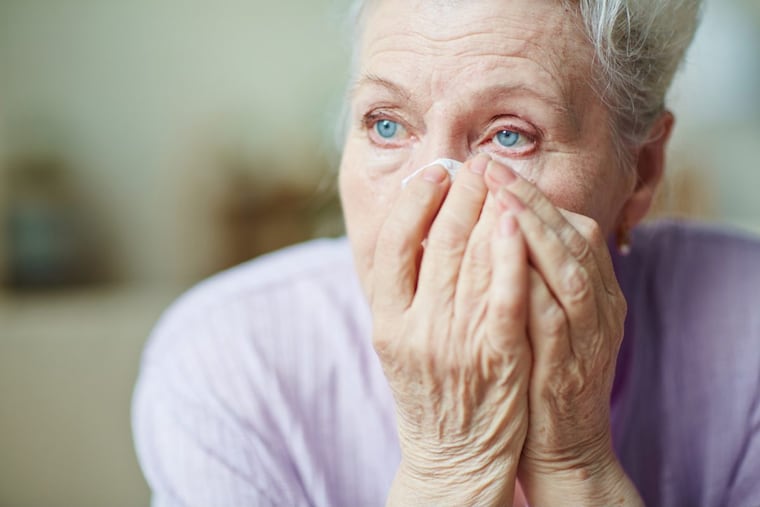How can doctors heal the emotional trauma of having cancer? | Patient perspective
One idea: As soon as the patient is scheduled with a breast surgeon and/or oncologist, a social worker should be assigned to meet with the patient. The social worker can gauge the patient’s emotional state and offer help.

A few weeks ago, the Inquirer published an article I wrote about the lack of emotional help for people like me who received a shocking cancer diagnosis after living a healthy lifestyle and having almost no family history of cancer.
Since then, the outpouring has been overwhelming. I got Facebook messages, emails, snail mail, people in my community stopping me on the street to tell me their stories and their own similar experiences. Even my cardiologist commented on it at my appointment and said his profession could learn from it. It’s apparent that there is a serious need for the medical community to provide more and better emotional support for their cancer patients.
I also was contacted by terrific non-profit organizations that provide free — yes, free — counseling and other vital services to cancer patients.
Cathy Nobil-Dutton, a counselor I located through Unite for Her, told me she agreed that more needs to be done to address the patient as a whole person. Nobil-Dutton said, “It is most important that oncologists learn to ask their patients how they are doing emotionally and then LISTEN to the response. … Doctors are all about killing the cancer. Of course, that is important, but acknowledging patients as people too, goes a long way in setting up a healing environment.”
Additionally, Jean Sachs, CEO of Living Beyond Breast Cancer reached out to me suggesting that “the medical community should normalize … the emotional impact of a breast cancer diagnosis. Let [patients] know that … they should share how they are feeling regularly with their doctor and seek out help and support.”
I have many ideas to make things better for cancer patients, but I would like to focus on two.
First, as soon as the patient is scheduled with the breast surgeon and/or the oncologist (or whoever their medical expert is), a social worker should be assigned to meet with the patient. The social worker can gauge the patient’s emotional state and offer help.
Second, since all cancer support organizations have brochures, they should be piled sky-high in doctors’ offices everywhere. Doctors should dedicate an employee to ensure that patients get the brochures with the knowledge that the patient will likely not read them for probably the first few weeks but at least have them in hand. The social worker should follow up with the patient and encourage the patient to reach out to the organizations.
Patients like me should not have to sit at their computers looking for help at one of the most vulnerable times of their lives. Our minds are reeling after our shocking diagnosis, the thought of difficult treatments to come, and how things will change for us and our families. Searching for emotional help is the last thing we want to do.
I have fortunately discovered that there is help for the emotional needs of cancer patients but there is no place where all of their excellent work is consolidated into one space for the benefit of patients. Some of the best support I received for my emotional needs came not from my doctors but from friends and neighbors who knew of helpful organizations.
Managing your emotional needs is crucial piece of healing. There’s got to be a better way.
Claire Gawinowicz lives in Oreland, Pa.